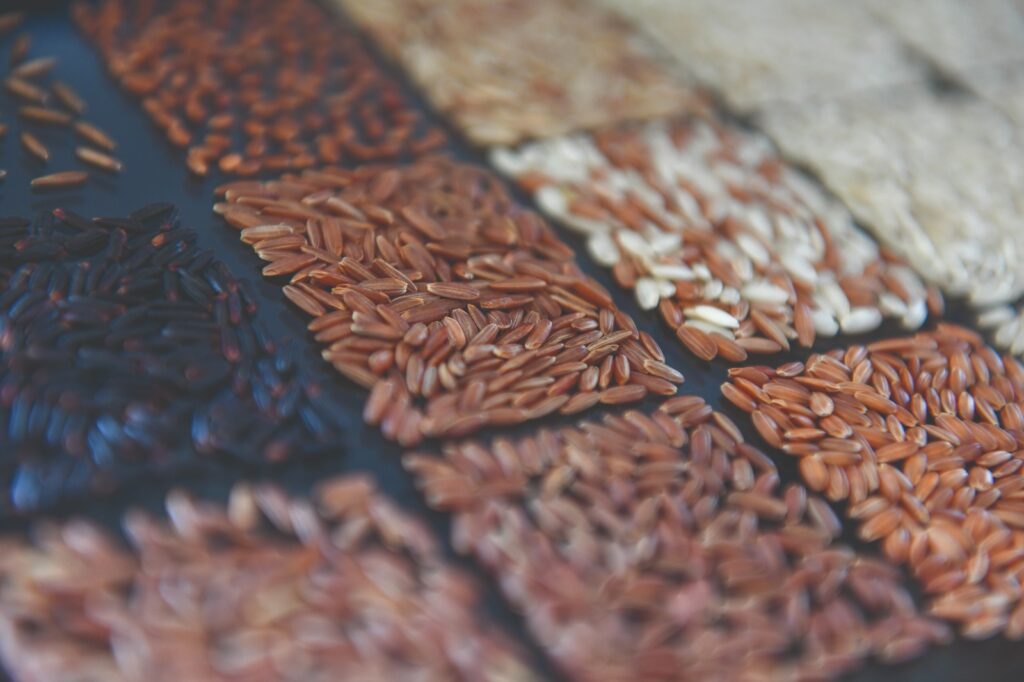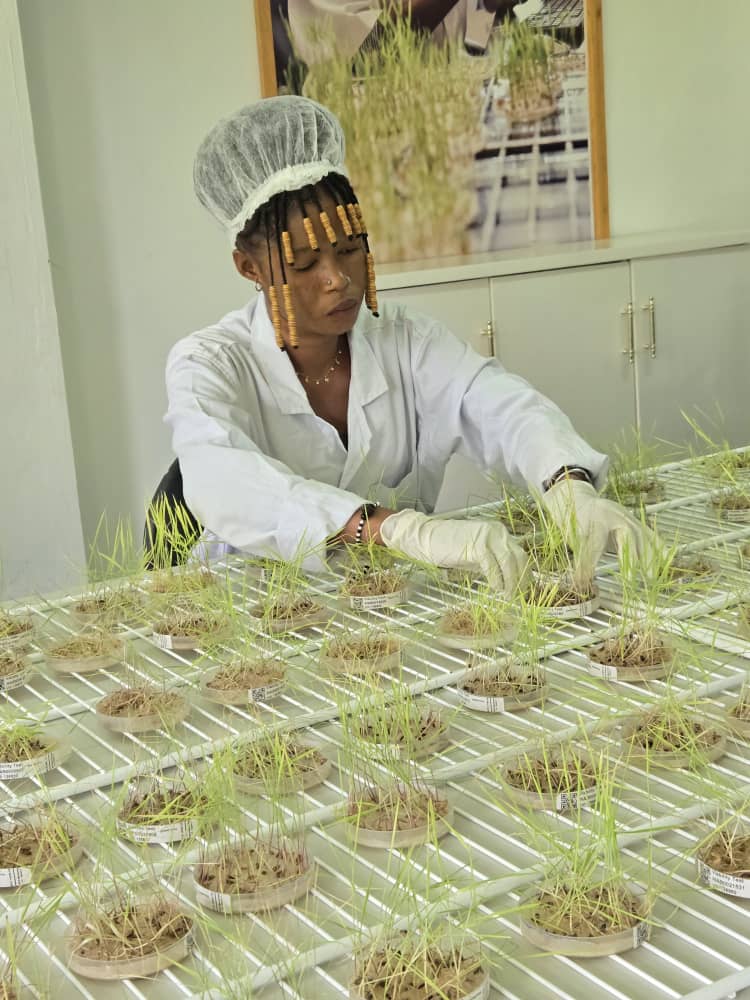By Ken KOUTCHAKPO

Over 35 million smallholder rice farmers across Africa stand to benefit from the agreement signed last month between the Crop Trust and the Africa Rice Center (AfricaRice) to safeguard the crop’s future in the region.
The agreement with AfricaRice – a CGIAR research center established in 1971 – secures long-term financial support for the essential operations of its genebank in Côte d’Ivoire, which holds Africa’s largest rice collection. The agreement is financed through the Crop Trust Endowment Fund to ensure the conservation and use of the crop’s diversity across Africa in perpetuity.
A dietary staple in 40 of Africa’s 54 countries, rice feeds and employs millions. Demand is rising by almost 6 percent each year – faster than for any other staple crop – driven by population growth, urbanization and shifting tastes.
In Sierra Leone, Liberia, Guinea, Senegal, Côte d’Ivoire, Ghana, Nigeria and Madagascar, it is eaten almost daily. It anchors national dishes and forms the base for countless local sauces and stews. Reliable availability and adaptability make it a cornerstone of both everyday meals and festive occasions.
However, Africa imports roughly a third of the rice it consumes, and climate change, pests, and loss of diversity in farmers’ fields increasingly threaten the continent’s rice production.
The Crop Trust’s support will provide AfricaRice with sustained resources to protect and promote its collections of Asian, African and wild rice diversity. It will improve efficiency in everyday genebank activities and increase the availability of rice diversity to researchers and farmers.
This funding ensures the long-term preservation and management of the rice collections in accordance with the highest international standards. The aim is to make rice diversity available to develop higher-yielding, nutritious, and climate-resilient varieties in sub-Saharan Africa.
AfricaRice will leverage AI to manage information on seed and conservation conditions in real time, optimise seed regeneration schedules and longevity, and make it easier for breeders and researchers to select the high-quality materials they need.

AfricaRice becomes the fourth genebank in the world to meet the rigorous standards required for a Long-Term Partnership Agreement with the Crop Trust. Other genebanks with similar partnerships are the International Institute of Tropical Agriculture (IITA) in Nigeria, the International Rice Research Institute (IRRI) in the Philippines, and the Alliance of Bioversity International and CIAT in Colombia.
The AfricaRice genebank is located at the institute’s main research station in M’be, a village in northeastern Côte d’Ivoire. It is the only one in the world conserving both African rice (O. glaberrima) and its wild relatives at scale. These species carry unique traits that are vital for breeding more resilient rice varieties.
With more than 21,000 rice seed samples in its cold rooms – 85 per cent of which originated in Africa – it is the third-largest rice genebank in the world.
The AfricaRice genebank has played a direct role in developing many rice varieties used by the continent’s farmers today. These include NERICA (New Rice for Africa) varieties, hybrids combining the high yields of Asian rice with resilience traits from African rice, and ARICA (Advanced Rice Varieties for Africa), which are particularly adapted to West and Central Africa.
The NERICA varieties have lifted8 million peopleout of poverty and food insecurity in16 African countries. They have significantly increased on-farm yields and boosted farmers’ incomes. These successes highlight the importance of safeguarding crop diversity, without which modern varieties wouldn’t exist.
AfricaRice not only conserves seeds but also ensures their use benefits farmers. It has distributed more than 38,000 samples in the past decade to international research centres, universities, national agricultural research systems and non-governmental organisations.
A specially selected set of samples of African ricecalled a core collection, which brings together maximum diversity in a relatively small subset of the collection as a whole, was sent to 17 countries in the past five years. Safeguarding this diversity today will help keep rice fields productive and resilient across Africa and around the world for generations to come.
“We are proud and excited to be entering into this Long-Term Partnership Agreement with AfricaRice, marking our fourth since the first one with IRRI in 2018. The Crop Trust is making this commitment to ensure that the vital work of AfricaRice’s genebank continues with the necessary resources to operate effectively,” Dr Stefan Schmitz, the Crop Trust Executive Director, said.
“The generous support that our Endowment Fund receives from donors around the world is crucial to climate-proofing our agri-food systems and dealing with unforeseen threats to genebanks and the crop diversity that they hold in trust for humanity,” Dr Schmitz added.
According to Dr Baboucarr Manneh, AfricaRice Director General, “As a 20-year veteran at AfricaRice, and as a rice breeder for five years before that, I am acutely aware of the challenges that scientists, farmers and seed producers grapple with on a warming planet.”
“This partnership with the Crop Trust, he continued, means that our genebank will be able to continue its mission of conserving and making available our rich reservoir of genetic resources in perpetuity. We look forward to a fruitful partnership that builds resilience to the many challenges that our food systems face across Africa and beyond.”











